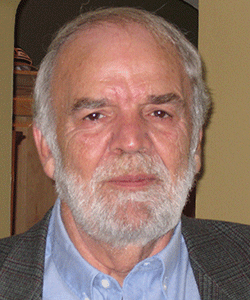Larry Jacoby
 Washington University in St. Louis
Washington University in St. Louis
William James Fellow Award
Larry Jacoby is one of the world’s foremost researchers on memory — specifically on the distinction between consciously controlled and automatic processes. The distinction is useful for better understanding of age-related differences in memory performance, and for improved diagnosis and treatment of memory deficits.
Under Jacoby’s leadership, the Aging, Memory & Cognitive Control Lab in Washington University’s psychology department has centered on questions related to cognitive control and to subjective experience. Other research extends the consciously controlled/automatic distinction to the domain of social psychology. Interest in subjective experience has led to investigations of memory illusions (e.g., memory for a prior encounter with a message making a room seem less noisy during a later encounter with the same message).
Jacoby’s studies indicate that automatic influences of memory and cognitively-controlled recollection serve as separate forms or uses of memory. By placing the two forms of memory in opposition, he has separated their influence on a variety of memory tasks. As an example, results have revealed an age-related decline in ability to engage in cognitively controlled uses of memory to recollect specific events along with a lack of age differences in automatic influences of memory. This combination of results helps to explain phenomena of aging that are often observed, such as older adults’ repeately telling the same story to the same audience. In Jacoby’s framework, this occurrence is due to automatic influences of memory (telling the familiar story) that are not successfully opposed by a cognitively controlled use of memory (recollecting that this story had recently been told to the same person). Young adults do not have this sort of problem because they have intact abilities of recollection. However, Jacoby and his group have shown that dividing attention and other manipulations that reduce cognitive control can produce dissociations in the memory performance of young adults that are similar to those found for older adults.
As well as helping to further refine theorizing about memory, one of Jacoby’s fundamental research goals is to develop procedures diagnosis and treatment of memory deficits.





APS regularly opens certain online articles for discussion on our website. Effective February 2021, you must be a logged-in APS member to post comments. By posting a comment, you agree to our Community Guidelines and the display of your profile information, including your name and affiliation. Any opinions, findings, conclusions, or recommendations present in article comments are those of the writers and do not necessarily reflect the views of APS or the article’s author. For more information, please see our Community Guidelines.
Please login with your APS account to comment.